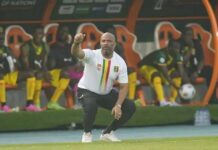In a bold move to promote fair play and integrity in sports, Nigeria has announced that its athletes will undergo mandatory doping tests before competing in international events. This initiative, a collaboration between the Sports Writers Association of Nigeria (SWAN) and the Nigeria Drug Law Enforcement Agency (NDLEA), aims to curb drug abuse among athletes and uphold the country’s reputation on the global stage.

The decision comes after a sensitization forum at the Akure Sports Complex shed light on the alarming rate of doping cases in Nigerian sports. Resource persons, including Mr. Olubunmi Akinsemola and Olympian Lawrence Adegbeingbe, presented evidence of the menace, emphasizing the need for stringent measures to ensure clean training practices.
The NDLEA has proposed the use of state-of-the-art doping testing kits to detect performance-enhancing substances in athletes. This proactive approach will ensure a level playing field for all competitors and safeguard Nigeria’s reputation from international embarrassment.
Education and nutrition have been identified as key strategies in the fight against doping. Athletes will be educated on optimal nutrition and supplement intake, while sports scientists will guide them on dietary choices that enhance performance naturally.
Coaches and administrative staff have been urged to support the initiative by guiding athletes towards ethical practices. The success of this program depends on collaboration among all stakeholders, including sports federations, government bodies, and the public.
Recent doping scandals have cast a shadow over Nigeria’s athletic achievements, highlighting the importance of rigorous testing and ethical conduct. A high-profile case involving a prominent Nigerian athlete who tested positive for banned substances during an international competition raised questions about the effectiveness of existing anti-doping measures.
Doping scandals not only affect individual athletes but also impact Nigeria’s standing on the global stage. International sports bodies closely monitor such cases, and any negative publicity can harm Nigeria’s credibility and hinder future participation in major events.
In response to these scandals, sports federations, government agencies, and athletes themselves are demanding greater transparency and accountability. Stricter monitoring, improved testing protocols, and educational campaigns are essential to prevent further incidents.
As Nigeria prepares its athletes for upcoming competitions, the focus must be on clean sportsmanship. By emphasizing fair play, rigorous testing, and a commitment to ethical practices, Nigeria can regain its reputation and inspire a new generation of athletes who compete with honor and pride.
Nigeria’s stance against doping in sports is a step in the right direction. With education, nutrition, and technology at the forefront, the country can produce champions who embody hard work, dedication, and fair play. It is a collective responsibility to ensure that Nigerian athletes compete with integrity and make the nation proud.




